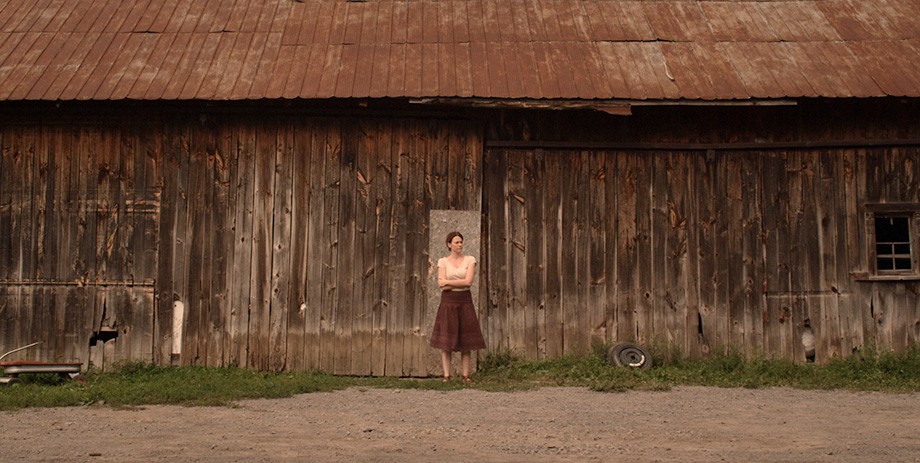The Barnhouse is the third short film written and directed by Caroline Mailloux. Her films Motel Pluton and Cher Dieu (Dear God) both enjoyed much success on the festival circuit, and Cher Dieu was also purchased by TV5 International and Shorts International. A recipient of ten writing and production grants, Mailloux is currently developing her first feature-length film Le jour où Barbara est sortie (The day Barbara was released), with support from Telefilm Canada, SODEC, and the Harold Greenberg Fund. With much emphasis on atmosphere, her work is driven by its characters’ psychology. (Press materials)
The Barnouse will play at the Toronto International Film Festival as part of the Short Cuts Canada Programme 6 on September 11 and 12.
WaH: Please give us your description of
the film playing.
CM: The Barnhouse — a sweltering August in a remote community. Authorities and neighbors from the area search for an 8‑year‑old boy who has gone missing. Near the old family barnhouse, Jacinthe finds her son Kevin escaping into his imaginary world. The secret he will reveal to her will change their lives forever.
WaH: What drew you to this story?
CM: It started with a compelling image: a little boy playing with a skull in an old barn. Then I sat and wrote the story in one go, very instinctively. After that, I expanded on the themes of lies and secrets, how they can quietly destroy a family. I was also fascinated by repressed anger and its devastating effects. I saw this story as an opportunity to explore a suffocating environment, to enter a family isolated and without resources.
WaH: What was the biggest challenge in
making the film?
CM: There were two main challenges. The first one was the complexity of the story: I wanted to tell it in the format of a short film, but I had big themes to explore and develop. The second one concerned the production. I needed several locations and scenes, at different times of the day. I had to shoot everything in five days without compromising on the quality of the direction.
WaH: What do you want people to think
about when they are leaving the theatre?
CM: “WOW, what a great film!” But seriously, I’d like people to question themselves about what Jacinthe (the mother) did, what her motivations were. I hope they will seek their own answers.
WaH: What advice do you have for other
female directors?
CM: To forget their gender and just make their films. I never doubted my right to direct films. Occasionally, I’ve encountered machismo on film sets (after all, it is still very much a male environment). I ignored it, but I made sure not to work with these people again! In Quebec, there is a growing number of talented women taking their place in cinema, thanks in part to the work done by their predecessors. There has been a strong presence of women in Quebec’s cinema in the last few decades. But female or male, we all have battles to win in order to get our films made.
WaH: How did you get your film funded?
CM: The Barnhouse is the first script I wrote (but not the first to become a film), and I had financial help to write it, thanks to a brilliant program dedicated to young writers called Jeunes Créateurs from SODEC (Société de développement des entreprises culturelles). Afterwards, I got a grant for the film production from the Conseil des arts et des lettres du Québec (CALQ). It was a generous grant, but not sufficient to meet all the requirements for such a substantial project. But with my producer, Christine Falco (Camera Oscura Films), we decided to go ahead and make the film, saving wherever we could without affecting the film’s quality. And I’m very glad we did it!
WaH: Name your favorite women-directed
film and why.
CM: I have several favorite women directors. I especially like Sofia Coppola — I must have watched Marie Antoinette five times. I love the aesthetics of that film, its modern direction, its ambience. And the soundtrack is just perfect! I find that her films have a strong and unique character, and are very daring.
In Quebec there are several rising female directors whose careers I follow with interest. I particularly like the films of Micheline Lanctôt, a Quebec pioneer female filmmaker. She is also a daring director and makes very personal and peculiar films.







